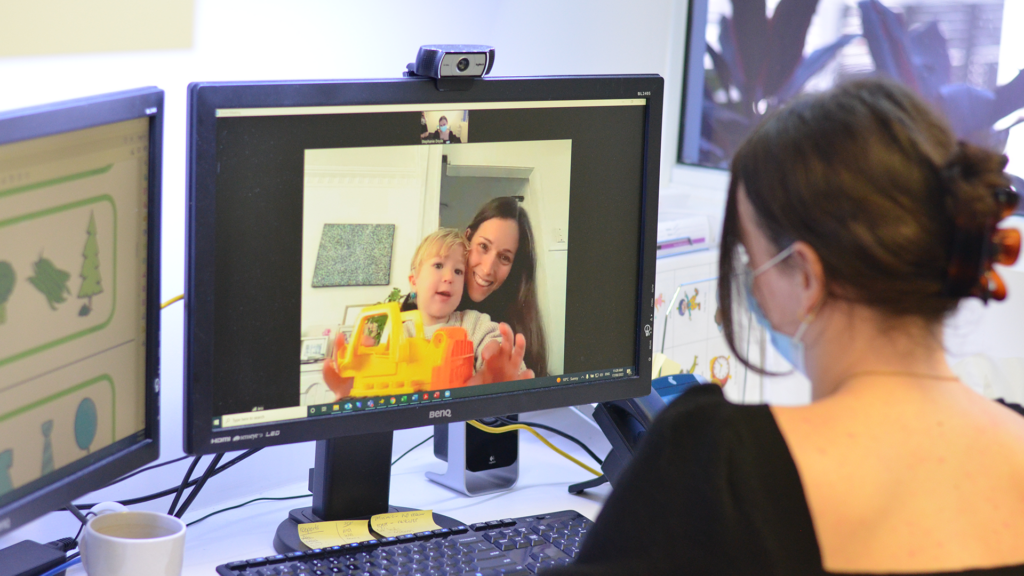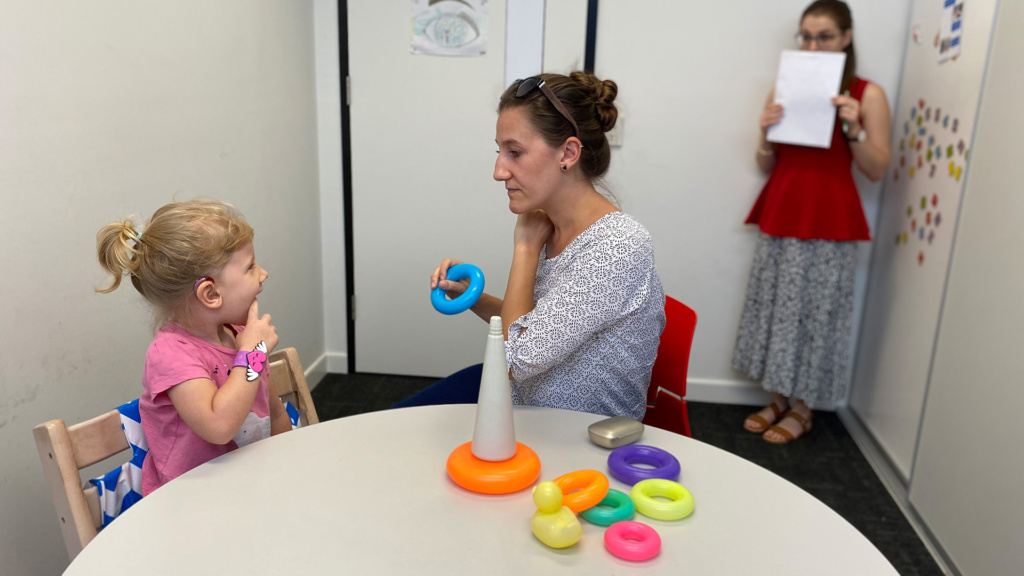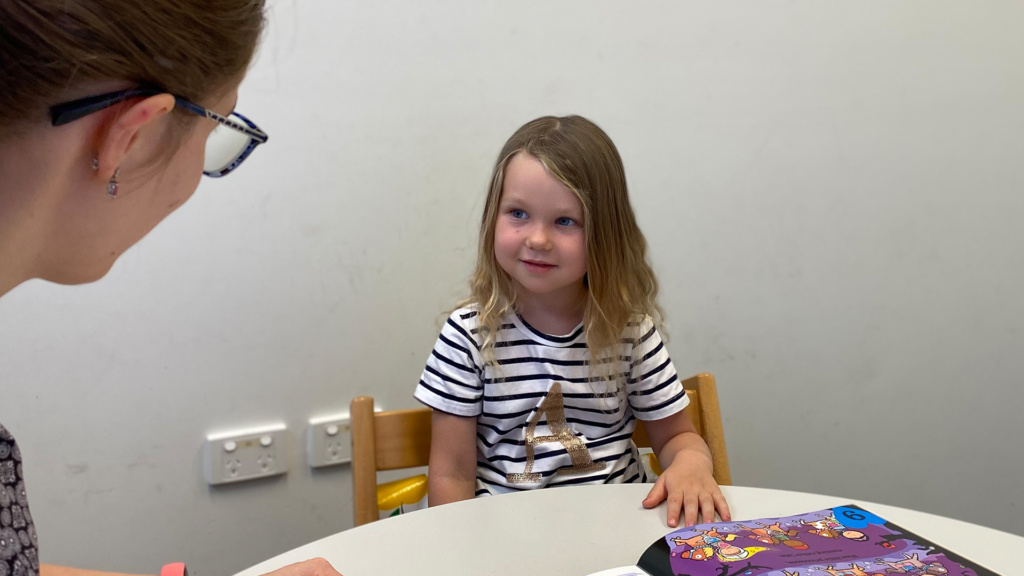What is Stuttering?
Everyone has probably experienced a time when they did not speak as smoothly or clearly as they would have liked. They might fumble on their sentences or add filler words such as 'uh' or 'like'. These are called disfluencies.
People who stutter experience more disfluencies and have different types of dysfluencies that disrupt the normal rhythm and flow of their speech. Often times, people who stutter know exactly what they want to say but have a difficult time expressing themselves. This can lead to the association of stuttering with negative emotions and feelings, which could continue to impact their confidence and self-esteem.
Everyone stutters differently and how much they stutter can change depending on the environment that they are in or their emotions at the time. How much someone stutters can also change from day to day or even during different times of the day. Stuttering may also be known by other names including stammering, disfluent speech and childhood-onset-fluency disorder.
What Causes a Child to Stutter?
There is no known cause of stuttering, but research has shown that it is likely due to a combination of multiple different factors which include:
- Family history of stuttering - many people who stutter are likely to have other family members who also stutter
- Differences in brain structure - people who stutter may have differences in the way their brain works during speech production (specifically the regions that coordinate and control the muscles responsible for speaking)
- Gender - boys are more likely to stutter than girls are
Additional factors that do not cause stuttering but can affect it include:
- The child's speech and language development - if the child's speech and language abilities are still developing, it is normal for them to not be able to produce smooth speech
- Environment - a child's stuttering may worsen if they are competing with someone else, being interrupted or in a noisy environment
- Heightened emotional stress - a child's stuttering may worsen if they are in a heightened emotional state such as feeling stressed or excited

When Does Stuttering in Children Start?
For most children, stuttering emerges in childhood around the ages of two to four years, which is consistent with the age at which they are starting to acquire more speech and language skills. As the characteristics of each child’s stutter are different, so is the way that a child may start stuttering. Some children may suddenly develop a stutter overnight, whereas other children’s stuttering may have a slower and more gradual development of a stutter.
What are the Signs and Symptoms of Stuttering?
The signs and symptoms of stuttering can change significantly throughout the day, but it is generally worse during a stressful situation such as speaking to a group. It is also normal for a person's stuttering to temporarily reduce while they are singing, reading, or speaking in unison. Some signs of a stutter include:
- Finding it difficult to start talking
- Repeating a sound, syllable, or whole word - e.g. I w-w-want to eat
- Stretching and drawing out a word or sounds in words - e.g. Ssssally is kind
- Pausing between words or within the word, where airflow is physically stopped at some point - e.g. I want a (pause) cookie
- Adding extra words such as 'um' and 'like' if they are expecting themselves to have difficulty with producing the next word
- Avoiding the use of certain words that they know they will have difficulty with or specific speech sounds
- Feeling emotions such as anxiety towards talking
Sometimes people who stutter may have associated actions which include:
- Unusual facial movements (sometimes called facial tics)
- Rapid eye blinks or loss of eye contact
- Head nodding
- Trembling of the lips or jaw
- Associated body movements - e.g. tightening of fists
How is Stuttering Diagnosed?
Stuttering is usually diagnosed by a speech pathologist (also known as a speech language pathologist or speech therapist), who is trained to assess and treat individuals with voice, speech and language disorders.
A speech pathologist will analyse your child’s stuttering by asking questions about your child’s history such as how long they have had a stutter or when it started. They may also collect a sample of their language to determine what types of stuttering your child presents with the most.
Sometimes they may also assess your child’s speech and language abilities, to see whether these may have a role to play in your child’s stuttering. This is because many children stutter during a period of time when they are still acquiring speech and language skills. Depending on how your child presents, they may also consider the impact that your child’s stuttering may have on their life.

How do you Treat a Child for Stuttering?
There is currently no cure for stuttering but there are a variety of treatments available that help people to reduce stuttering in their speech and to speak more smoothly. Many of the current therapies focus on teaching new ways of speaking that minimize stuttering through strategies such as speaking slowly and coordinating their breathing with their speech.
Many of these therapies also include a component that considers and helps to address possible anxiety that a person who stutters may feel in certain speaking situations. Children may benefit from attending speech therapy to address how stuttering affects their own speech. It is helpful to seek professional help and early treatment to avoid the child becoming aware or self-conscious of their stuttering. Sometimes children will begin to try different aways to avoid stuttering or change how they form sentences.
The treatment focuses will differ based on a child's age, communication goals and other factors. If you or your child stutters, it is important to work with a speech pathologist to determine the best treatment options.

How can I Help my Child who has Stuttering?
Some things that you can do to help your child in their stuttering journey include:
- Keeping a relaxed and calm home environment that allows many opportunities for the child to speak – e.g. setting aside time to talk to one another, especially if the child is excited and has a lot to say
- Listening attentively by focusing on the content of the message, rather than responding to how it was said or interrupting the child
- Speaking in a slightly slowed and relaxed manner to help reduce any time pressure
- Waiting for the child to finish their own sentences when they are stuttering instead of finishing their sentences or giving them advice when they are speaking – this is important as it helps the child to learn that they can still successfully communicate when stuttering occurs
- Not punishing them for stuttering – this can have the opposite effect and lead to more feelings of anxiety towards talking
When Should I Speak With a Speech Pathologist?
For the majority of children between the ages of two and five, stuttering is a normal part of their process of learning how to speak and will naturally resolve on its own. However, stuttering that continues in older children (past five years of age) may require help from a speech pathologist to improve the rhythm and flow of their speech.
It is encouraged for your child to see a trusted health professional if their stuttering:
- Lasts six - 12 months or longer
- Started later than three and a half years
- Occurs along with other speech or language difficulties
- You notice your child starts to tense up or seems to physically struggle when talking
- Affects their ability to communicate at school or in social situations
- Causes them to start to feel anxiety or embarrassment about their talking - e.g. fear of participating in class activities
What are the Long-Term Effects of Stuttering if Left Untreated?
The long-term effects of untreated stuttering can be influenced by factors including how often the child stutters, what type of stutter they present with as well as whether their attitudes and feelings towards their stutter are positive or negative.
For many children who stutter, increased self-awareness and consciousness about their speech could lead to more instances of feeling fear, embarrassment and anxiety towards situations that require them to speak. Stuttering may also impact and limit their participation in social interactions at school, and their ability to make requests or complete tasks such as speaking on the phone.









